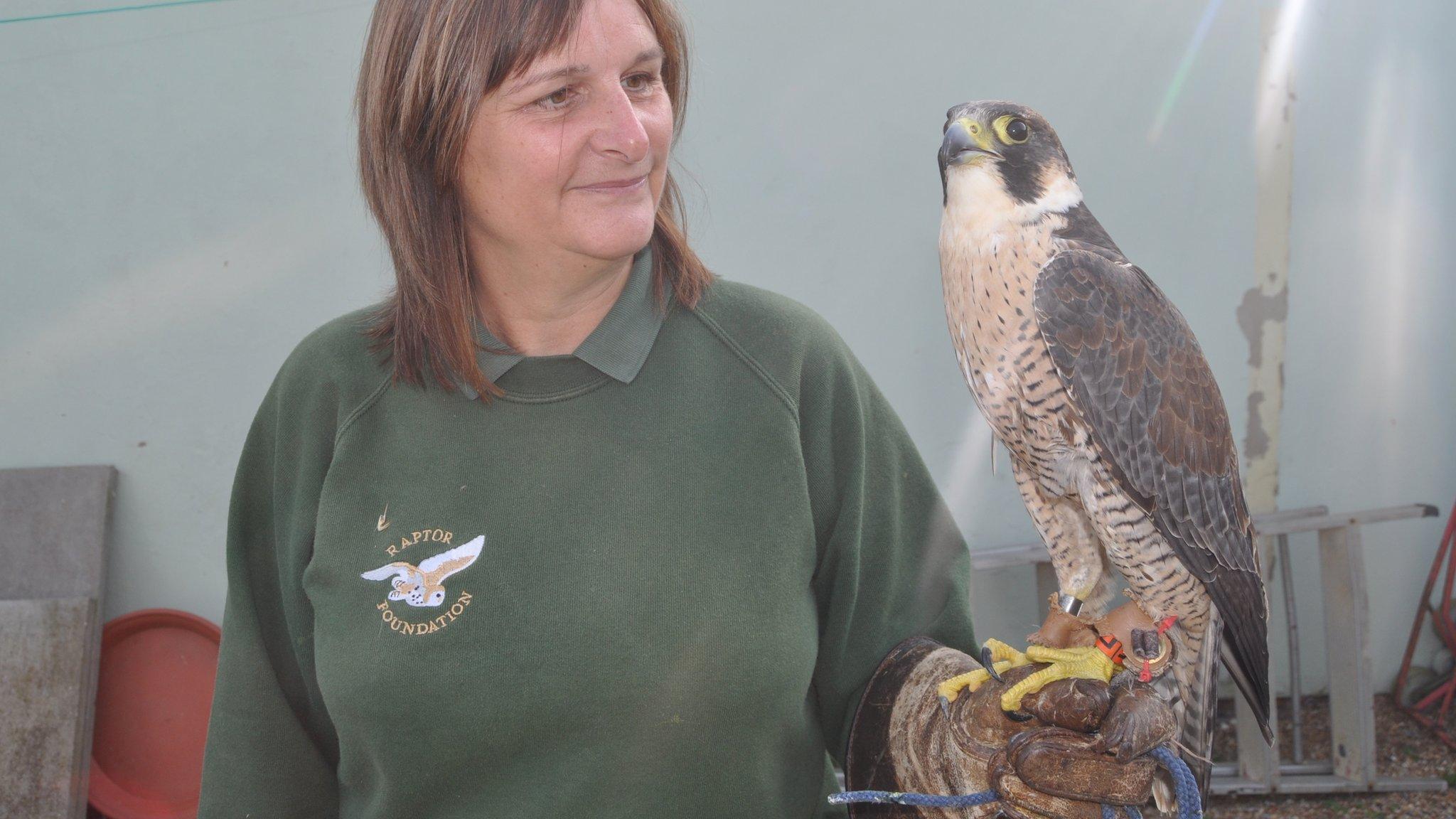Peregrine chicks fledge from BT water tower in Suffolk
- Published
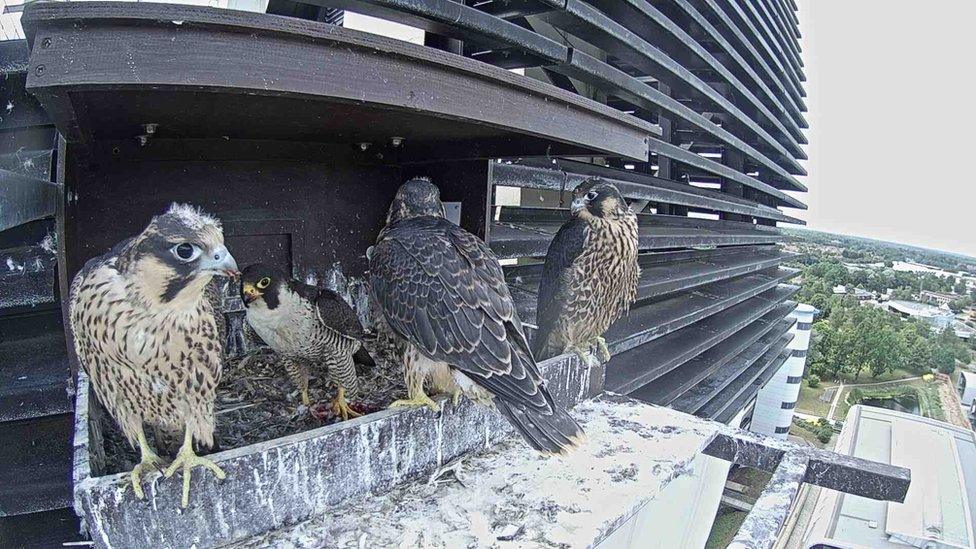
The maturing chicks will learn survival skills and "gradually drift away to find their own territory"
A pair of peregrine falcons that produced three eggs in a nest box on a water tower have seen all their chicks fledge and fly.
The pair are believed to have bonded for the first time this year at BT's Adastral Park at Martlesham, Suffolk.
The chicks, which fledged at the end of June, are being trained in survival skills by their parents.
"I'm pretty sure one female and two males hatched," Peter Merchant, a Hawk and Owl Trust expert, said.
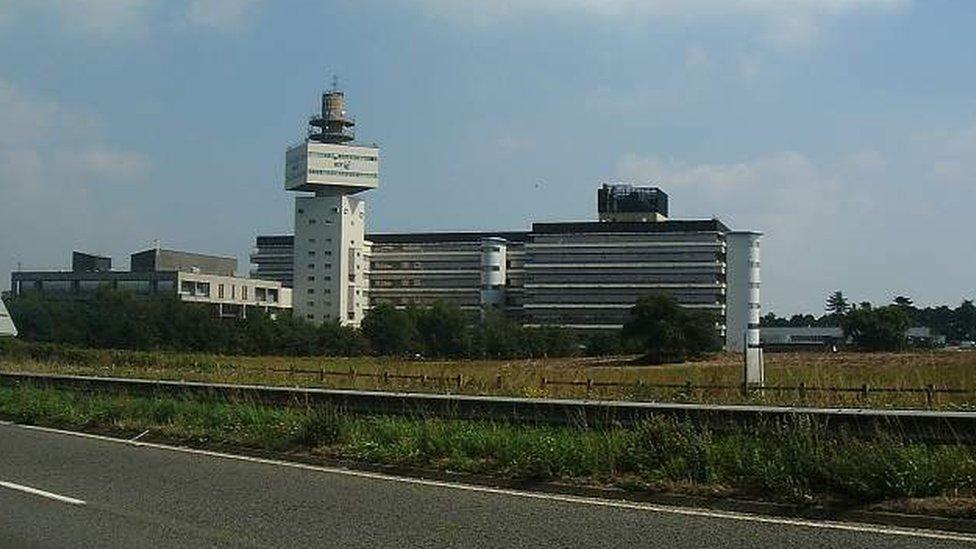
The water tower is the darker square structure seen above the roof of the building on the right
"They will stay close to the nest until early August learning the skills they need to survive and then gradually drift away to find their own territory.
"[The mother] will now stay to protect her nest for the next year.
"This is the male bird's first clutch as he brought small birds as well as pigeons to feed the chicks and may not be so experienced at hunting.
"After a few weeks he will drift further away and the cycle will begin again in January."
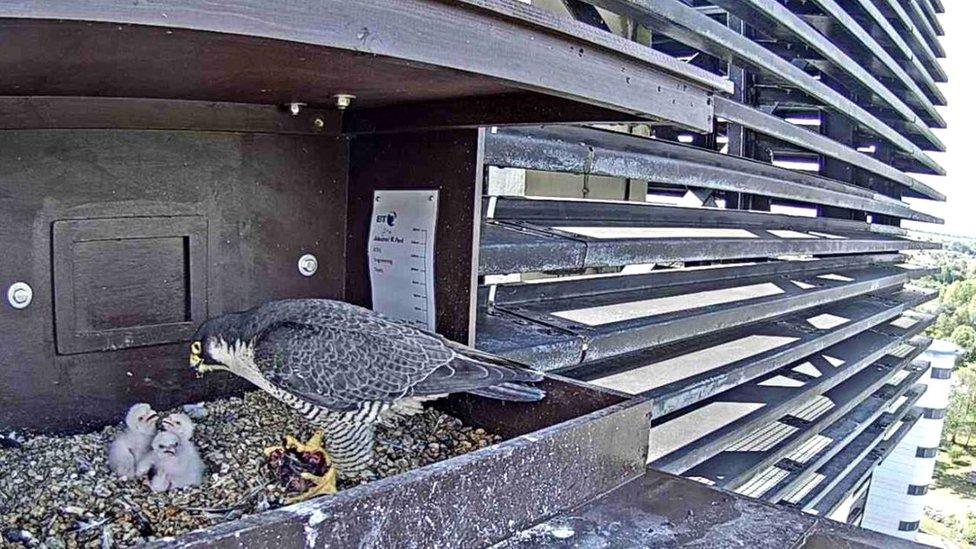
The peregrine chicks just before fledging being fed in the water tower nest
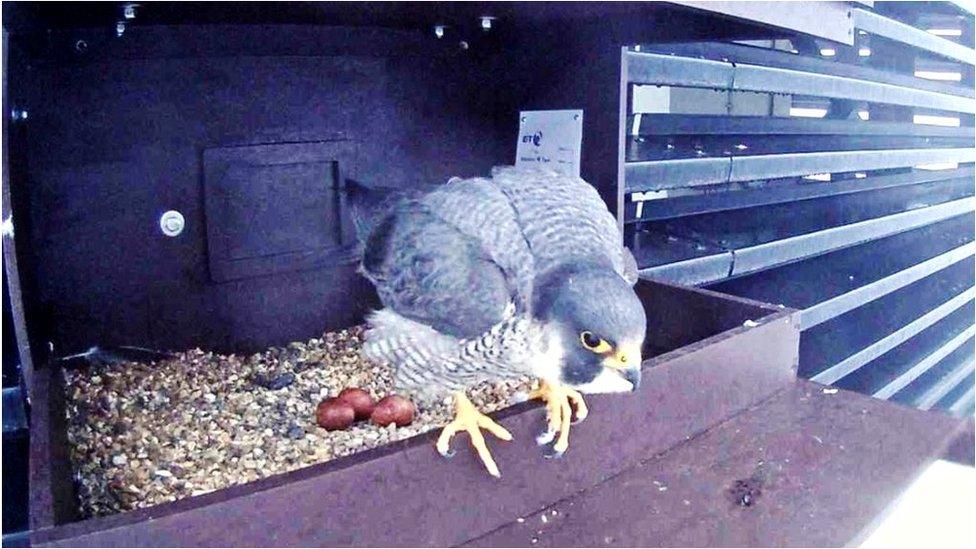
The peregrine (pictured before the chicks hatched) is the planet's fastest creature - reaching speeds of 180mph (290km/h) when diving in flight
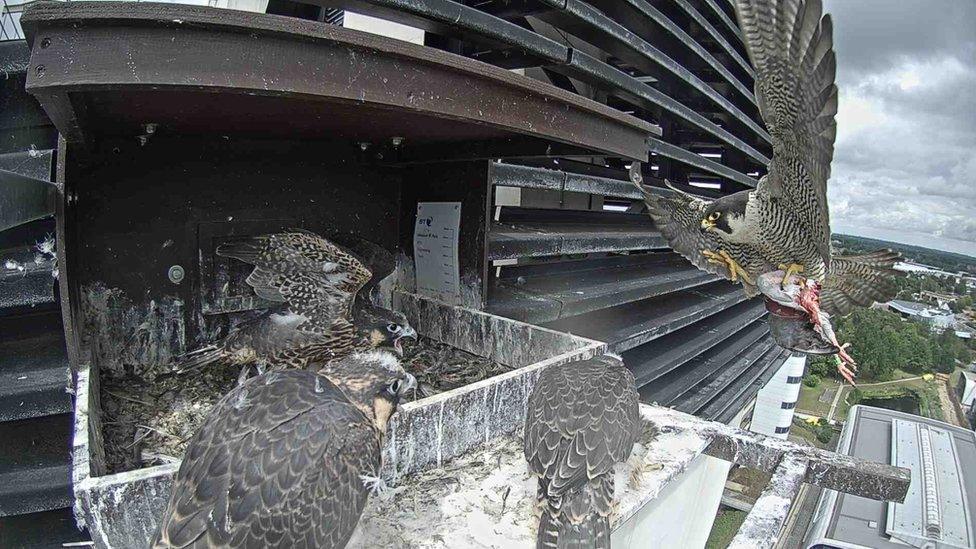
The parents took it in turns to hunt for food for the chicks
A monitoring camera, external has been set up by the Hawk and Owl Trust at the nesting shelf.
Lisa Perkins, BT's Adastral Park research realisation director, said: "We were delighted our peregrine pair settled in and were able to successfully raise three gorgeous chicks to the point where they are now flying around the site and at times making quite a din.
"We are already getting ready for next year and taking our tech up a level such that we get an even better view, anticipating our pair will come back to us."
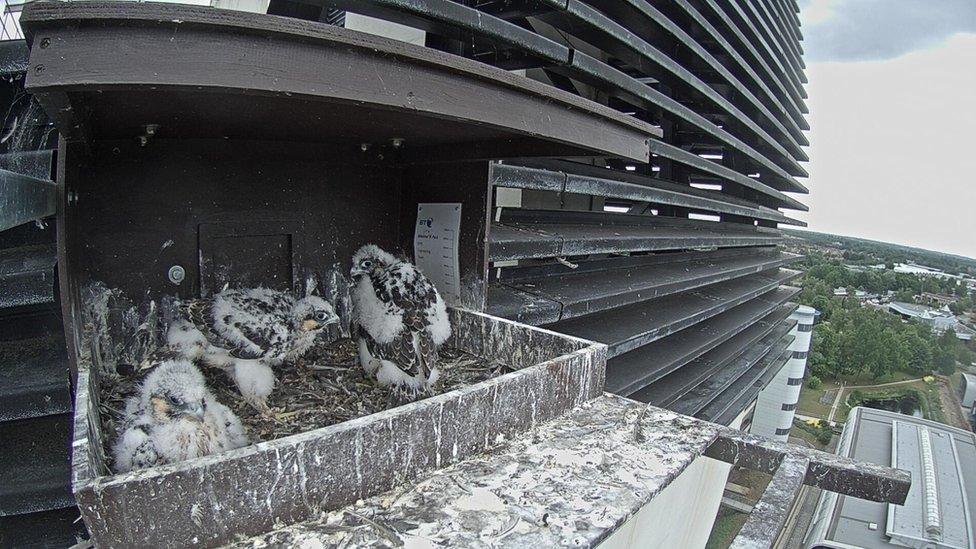
The chicks were fed on a diet of pigeons and small birds as they grew towards fledging
- Published13 April 2019
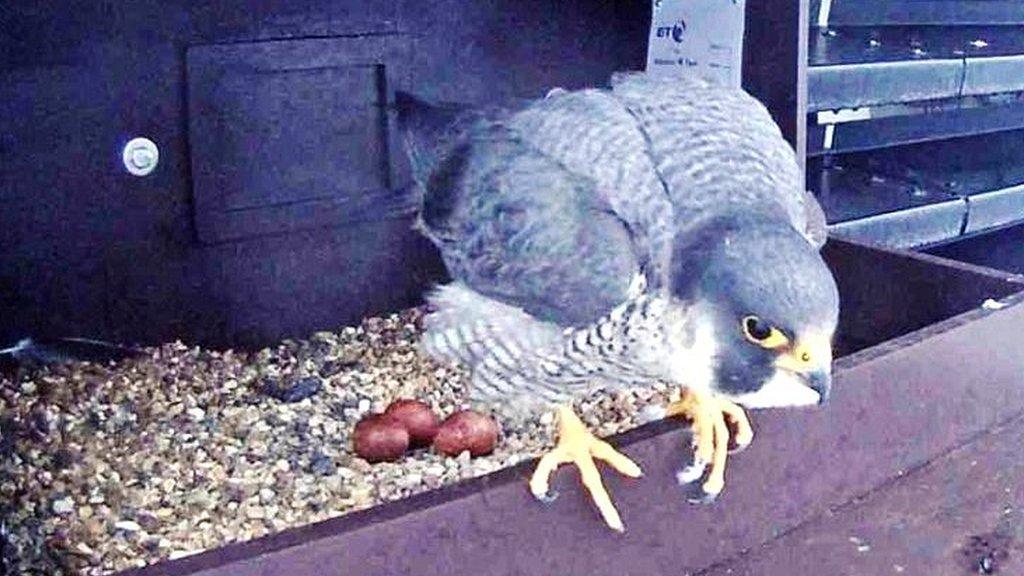
- Published20 January 2019

- Published25 May 2016
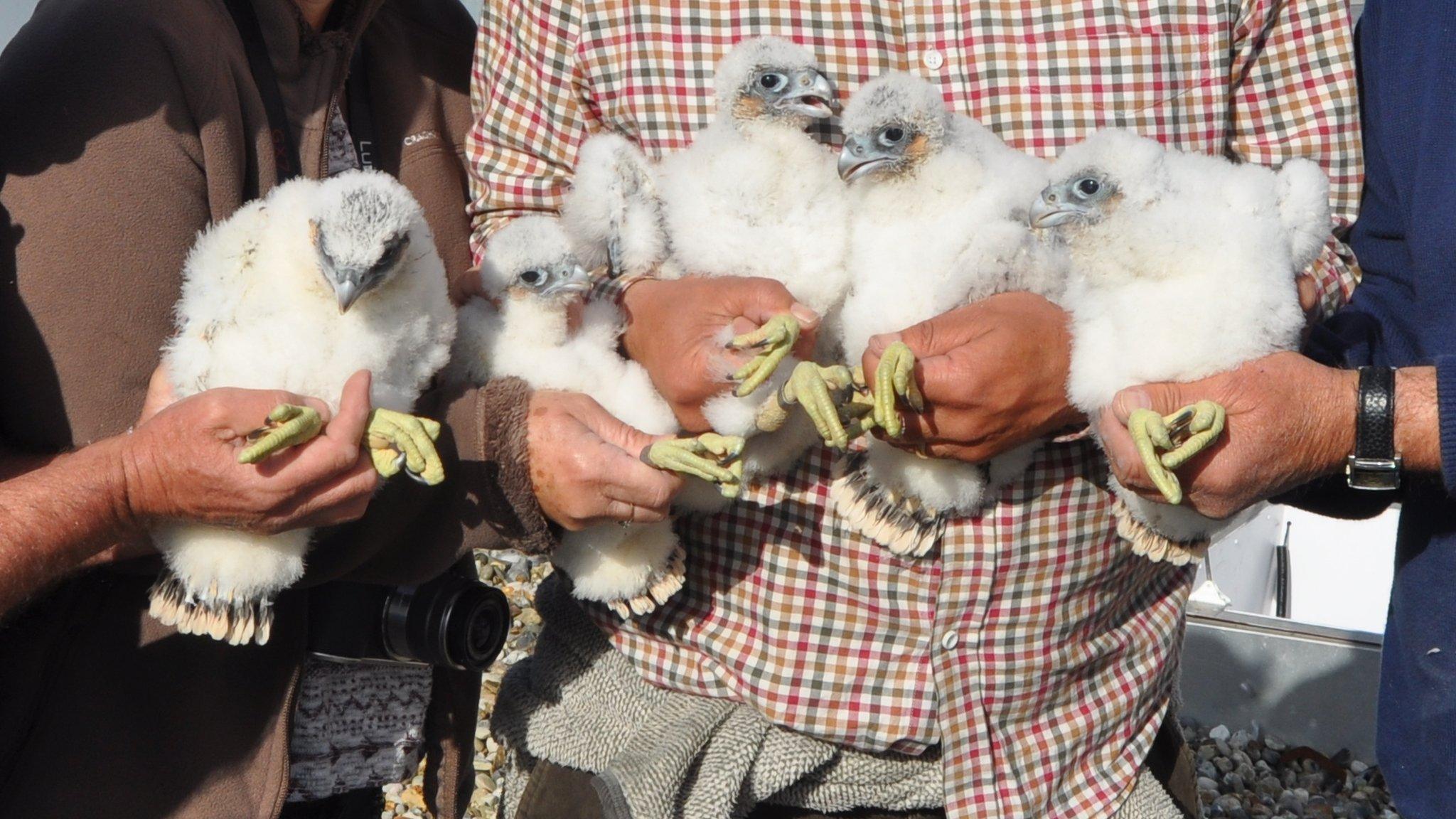
- Published3 May 2016
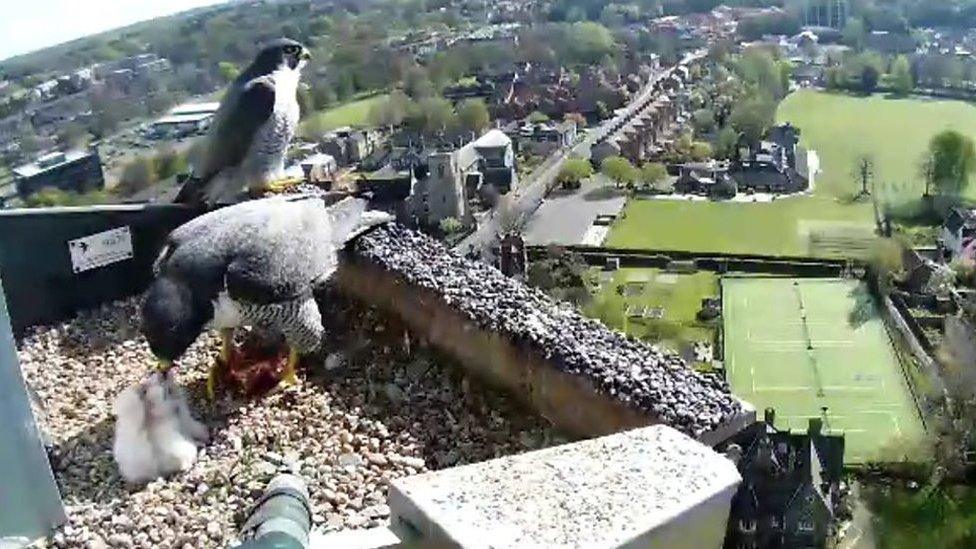
- Published23 May 2015
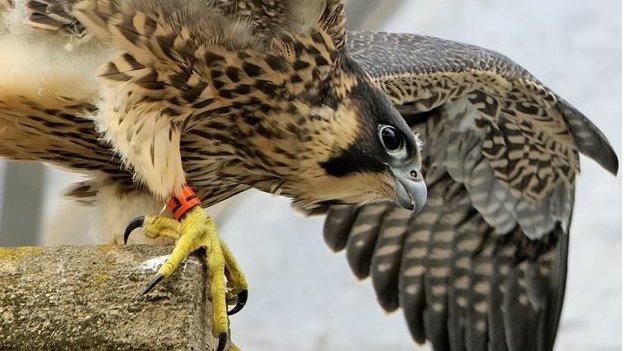
- Published1 November 2015
